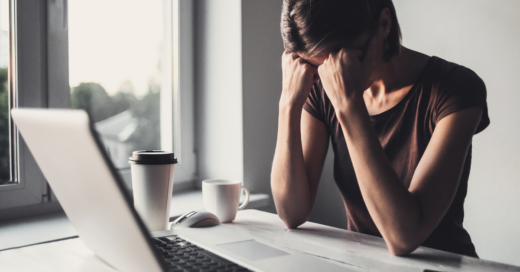
It seems like a great irony that Stress Awareness Month falls during the height of the COVID-19 pandemic in the United States. We all seem to have become remarkably aware of our stress any time we read the news or step out of our homes.
While we spend a lot of energy trying to stay free of sickness by handwashing and social distancing, our stress levels and mental wellness are another component of overall well-being that can impact our immunity.
Stress can immediately impact our bodies from blood pressure to heart rate, but prolonged stress can also increase our likelihood of getting sick. As we work to practice social distancing, stress and anxiety are ongoing medical concerns that can be addressed via a virtual visit with your doctor.
While we all cope with unprecedented stressors, we asked the physicians of Gaston Medical Partners what they do to manage stress in their own lives.
Getting in Exercise
Exercise can seem like a stressor in itself if it isn’t part of your regular routine, but there are chemical explanations to support its service as an anxiety reducer. Stress hormones like cortisol and adrenaline are eliminated through physical activity, while endorphins are released that make the body feel relaxed and positive.
Dr. Jessica Kafer uses yoga as a go-to mental release. “That hour of time to myself can make a huge difference in my stress level,” she says. While yoga studios and gyms may be closed, Dr. Kafer has at-home exercise tips you can use, including virtual classes and workouts.
Exercise can also take the form of functional and fun activities you enjoy doing anyway, like gardening or mowing the lawn. Dr. David Locklear plays basketball several mornings a week and, while he can’t get in a pickup game during the stay-at-home order, he can work on his jumpshot to be ready for his first post-COVID-19 game.
Quality Diet & Consistent Sleep
What you eat plays a large role in how you feel both mentally and physically.
“Simple sugars can make you feel sluggish and tired,” says Dr. Brian Wysong. “A quality diet allows for better mental focus to get work done more efficiently and so you’ll have more energy to tackle the day.”
While how much sleep someone needs varies from person to person, having quality sleep hygiene plays a factor in your mental well-being. That means a consistent routine of sleep, including when you get to bed and when you wake.
“Staying on a good routine is important,” Dr. Wysong says. “This allows for better mental clarity and the ability to handle the bumps in the road more effectively.”
Meditating & Unplugging
Meditation brings to mind sitting, legs crossed, in a dimly lit room, but it can take a variety of forms, all with the common goal of calming your mind. There are online resources and apps like Headspace that help provide guided meditations, but focus on whatever method works for you.
“I enjoy sitting down, taking a break, praying and reading the Bible,” Dr. Wysong says. “It helps me understand I am not in control. I think about others and their struggles and how blessed I truly am. I focus on how I can help others and do for them rather than worrying about all my desires.”
Dr. Derek Reed enjoys woodworking as a way to reduce stress. He and his wife work on projects together as a way to unwind and enjoy quiet time as a couple.
Taking a step away from our devices, leaving our laptops, phones and social media behind for a break can be a calming exercise in itself.
“I like just unplugging for a bit and getting outdoors for some fresh air and change of scenery,” Dr. Kafer says. “It can be as simple as going out for a walk in the neighborhood or even reading a book on the porch.”
Knowing When to Ask for Help
Stress is natural and, while we can’t control outside forces in our lives, we can control the ways we cope. Utilizing coping mechanisms during these difficult times allows us to take an active part in managing stress.
Talking with your primary care physician is a great way to build your stress relief toolkit. With the key role our mental wellness plays in our overall wellness, utilizing your doctor as a trusted resource, either with a virtual visit or in-person conversation, can make a big impact.
